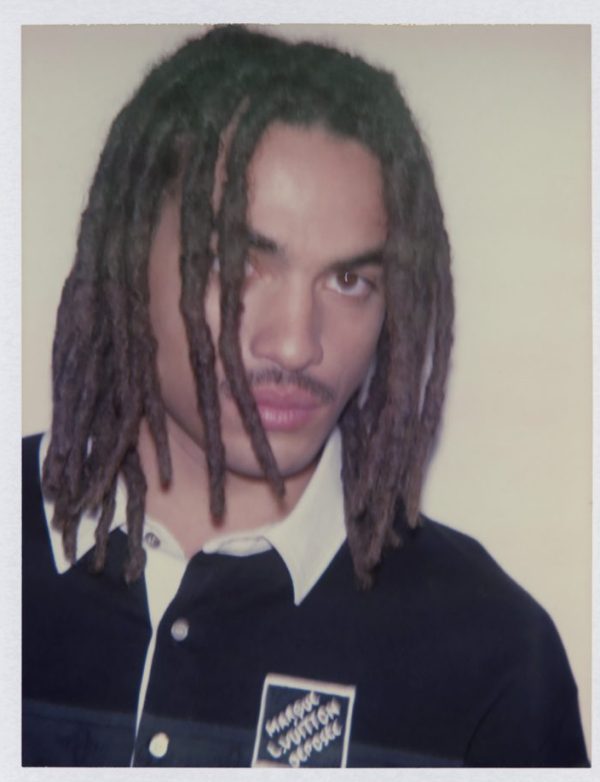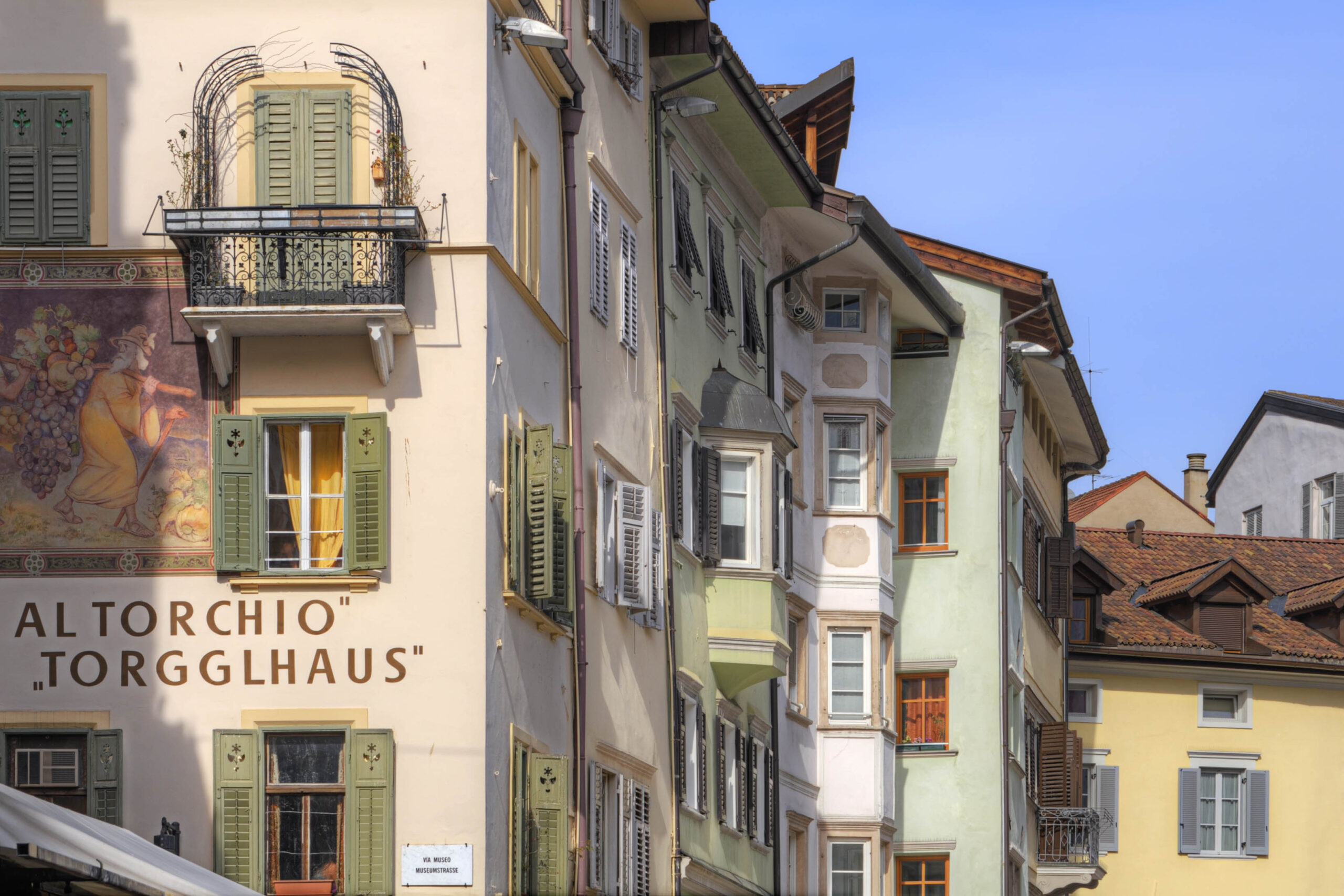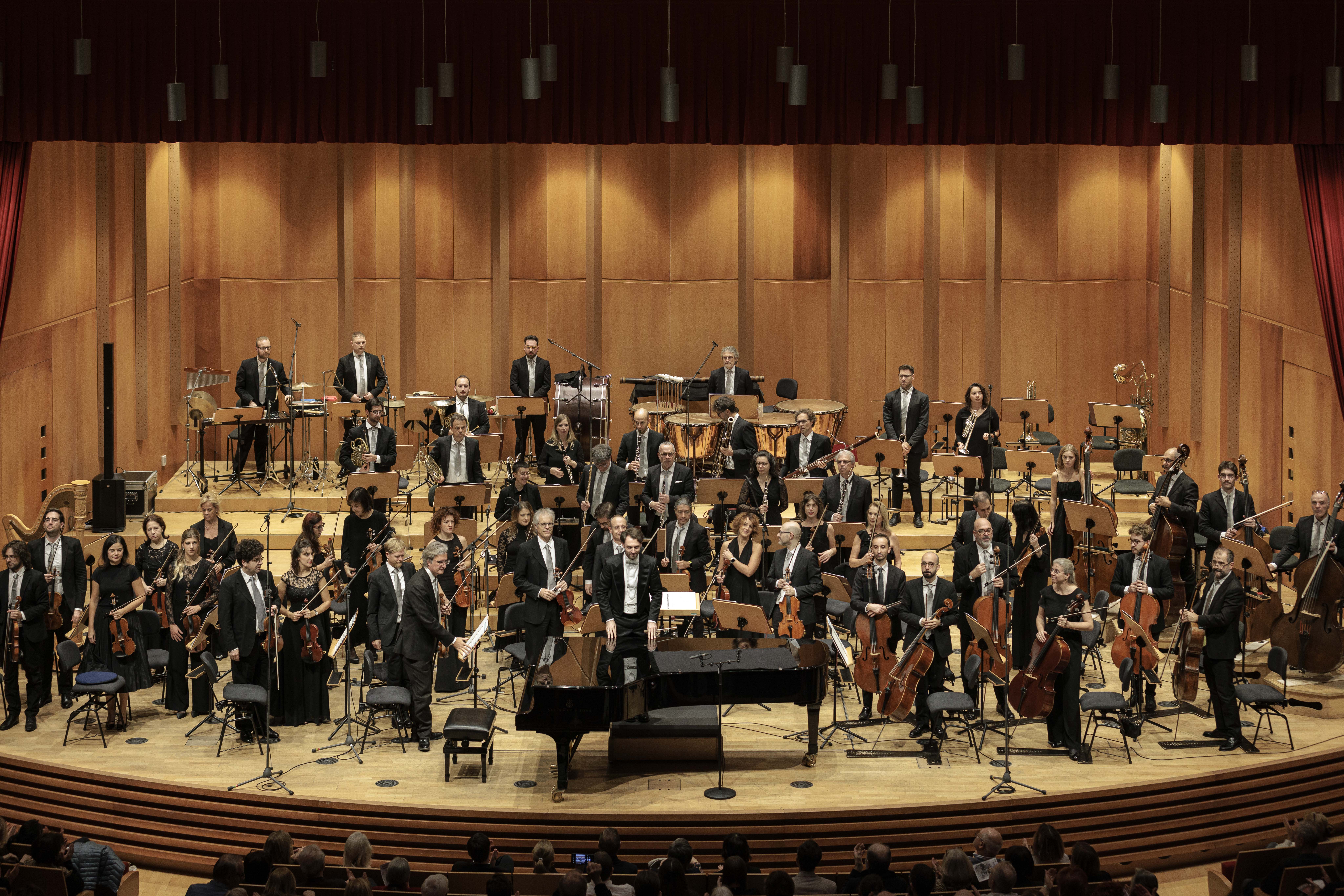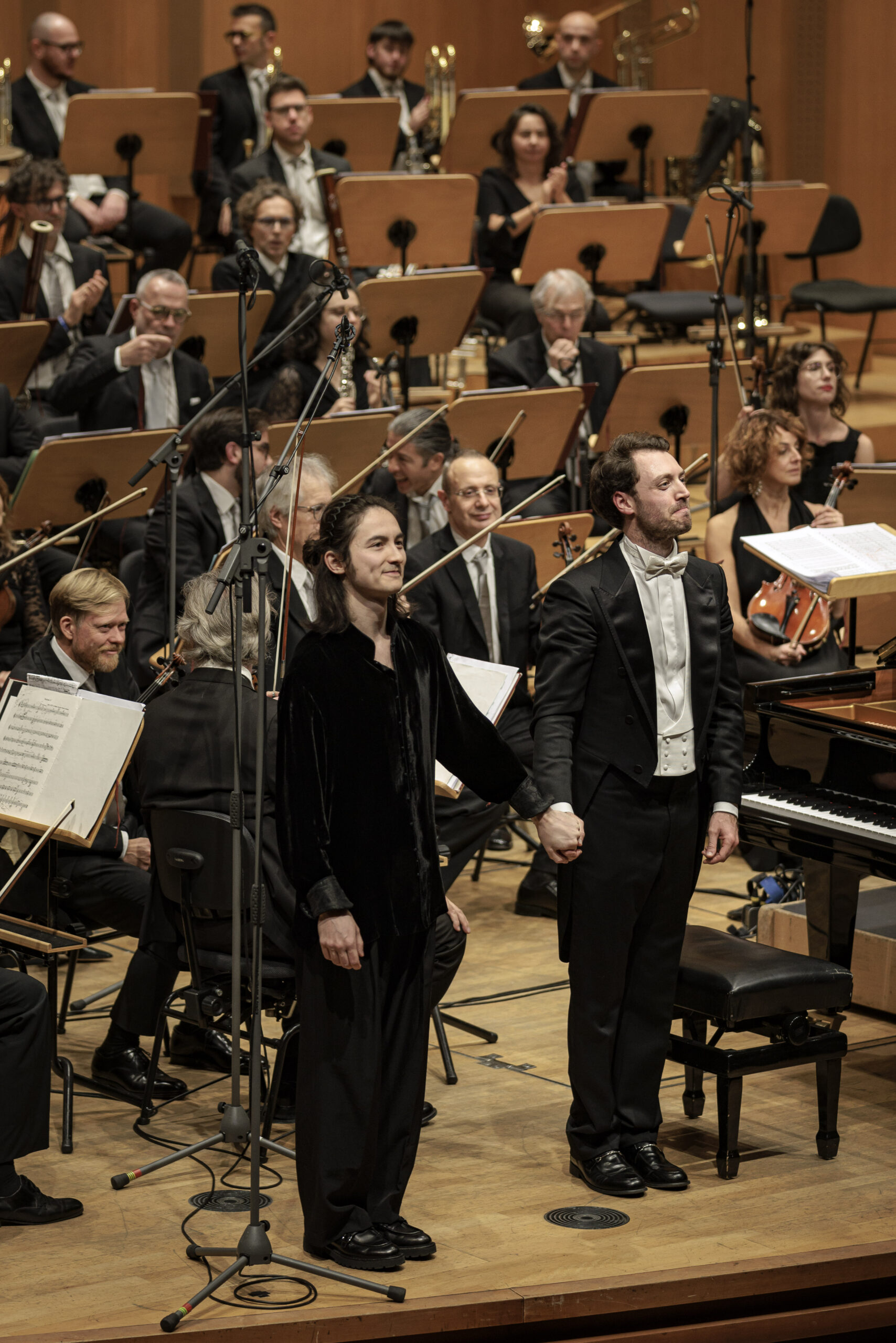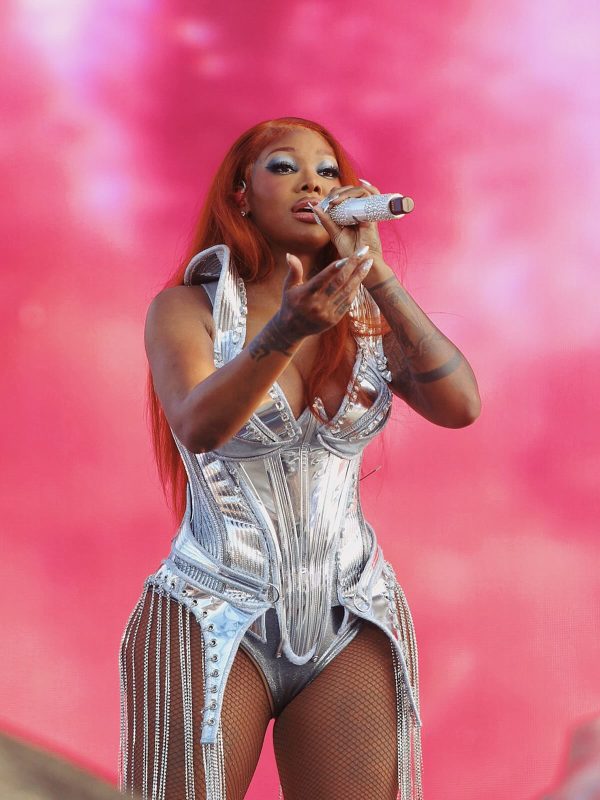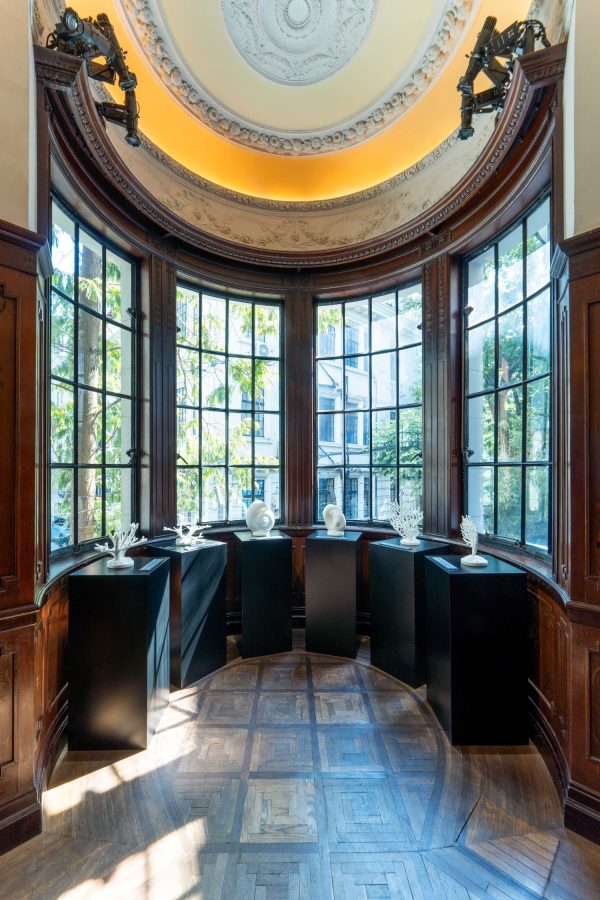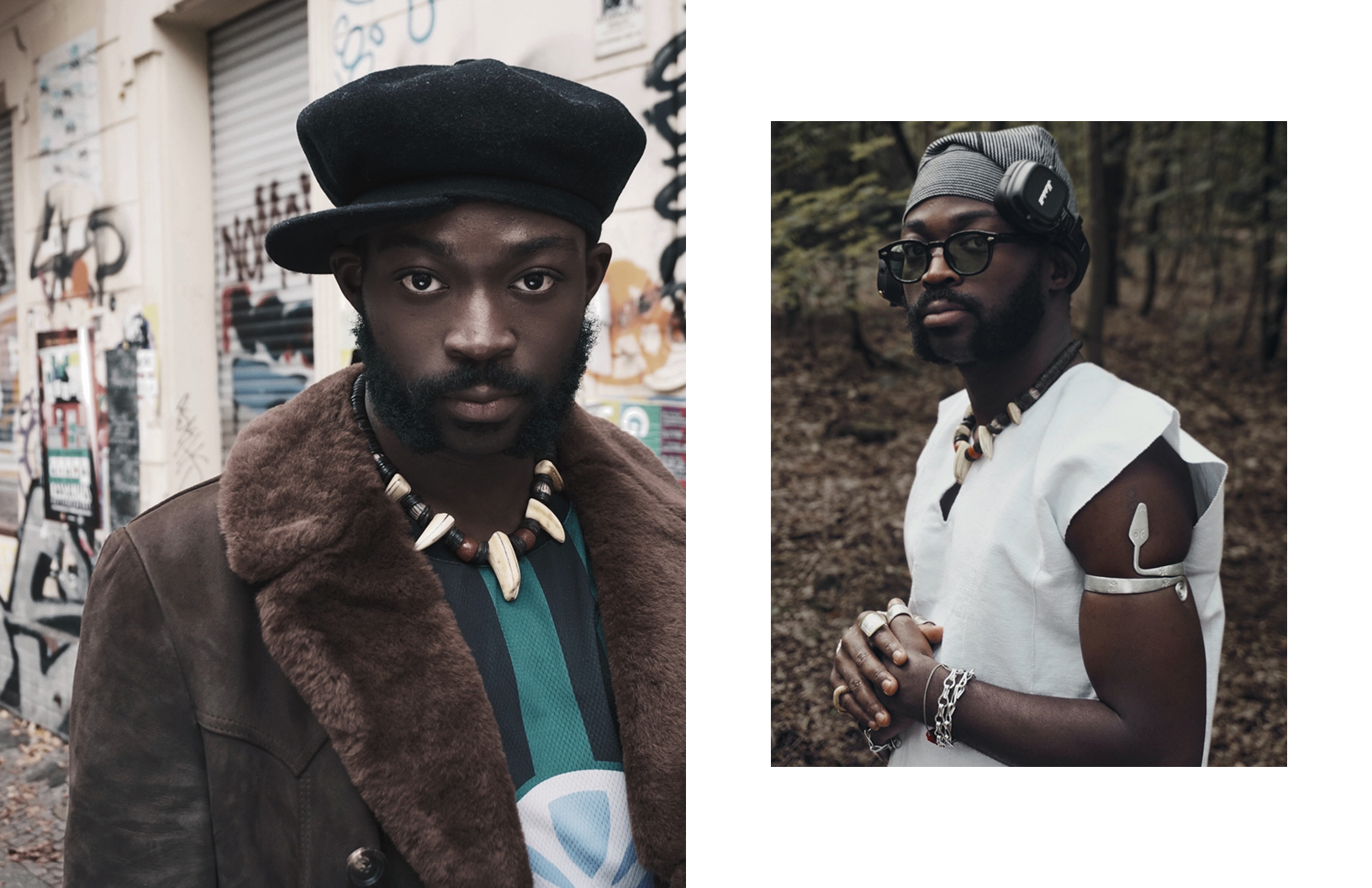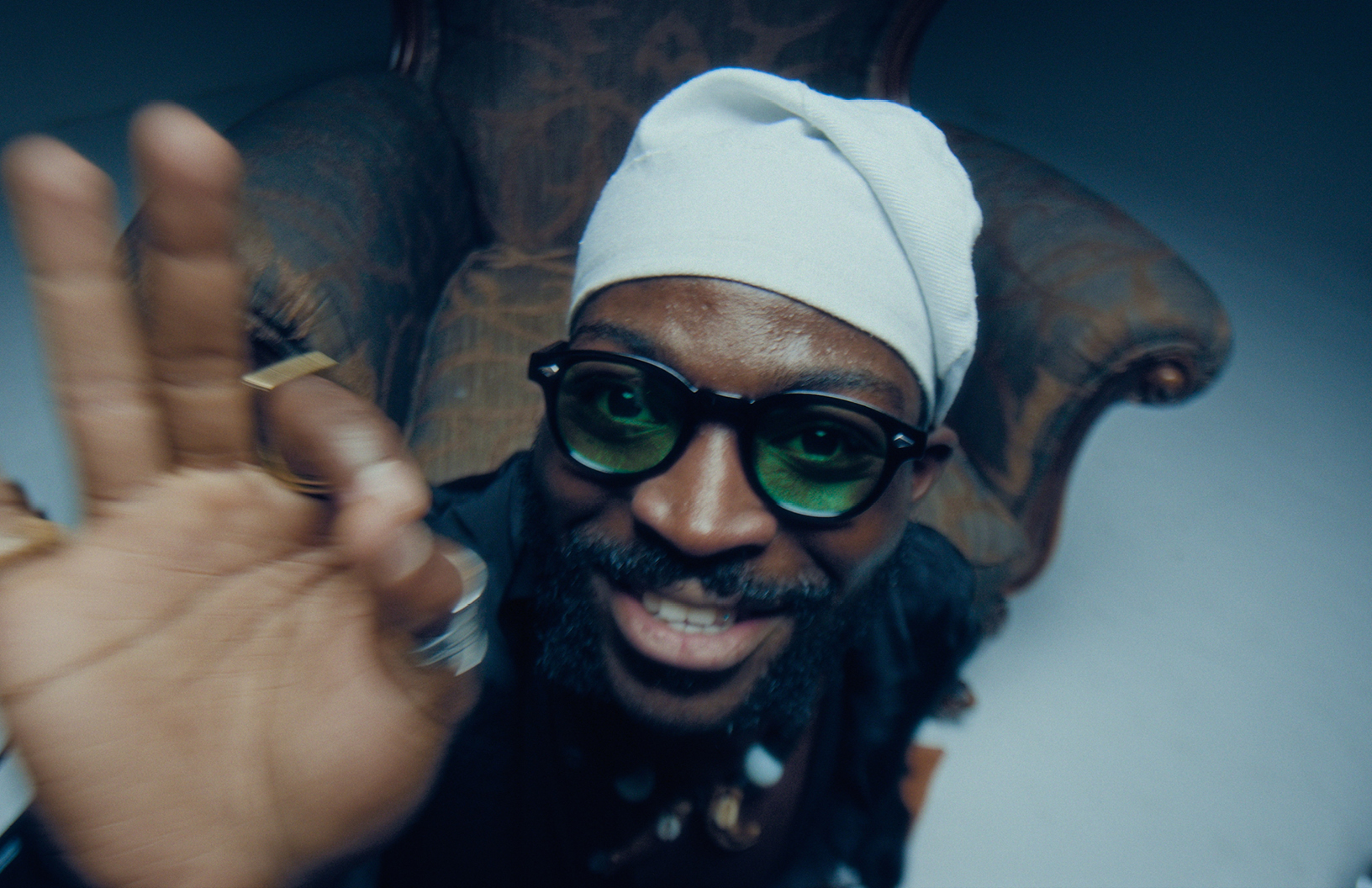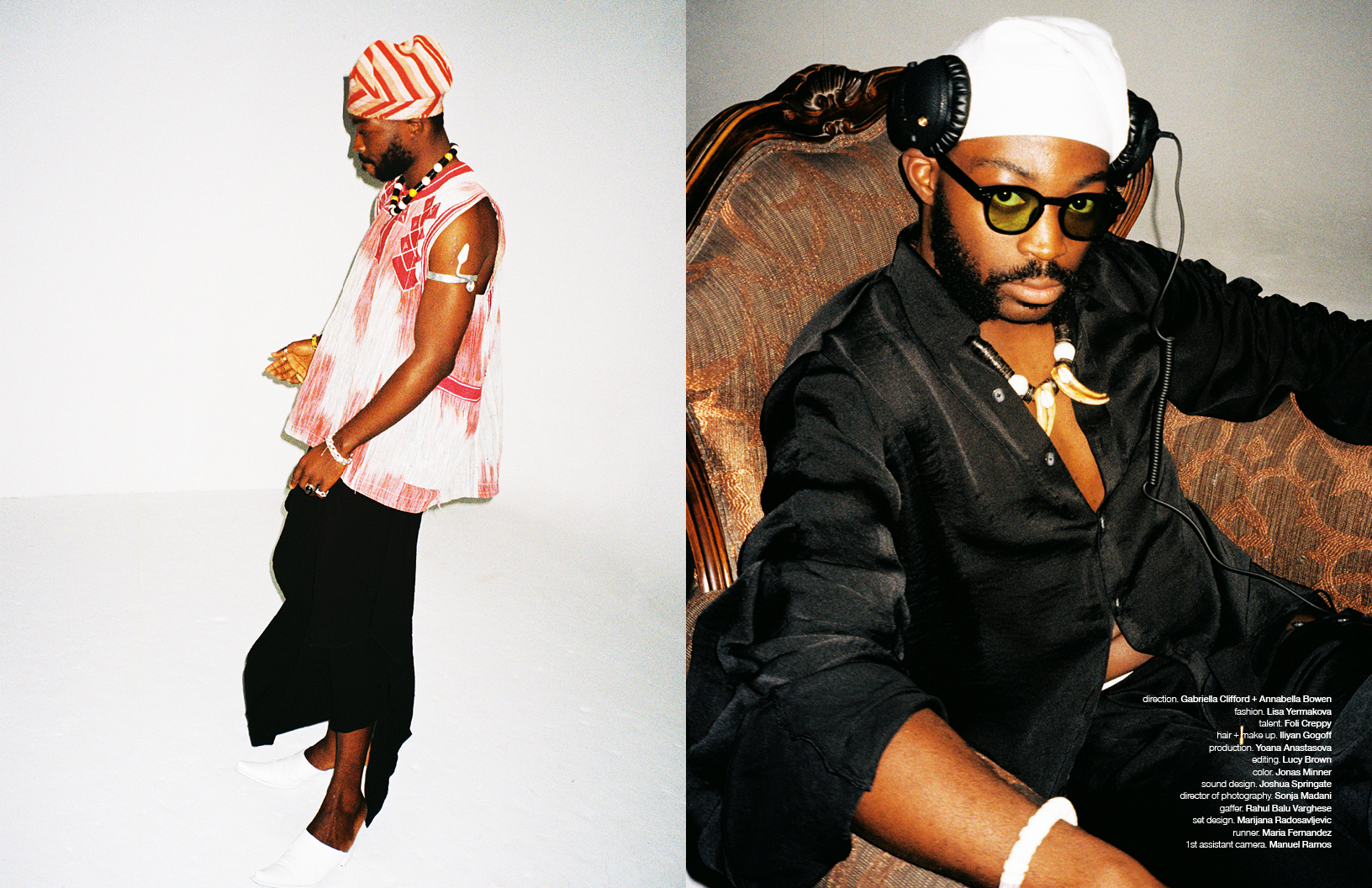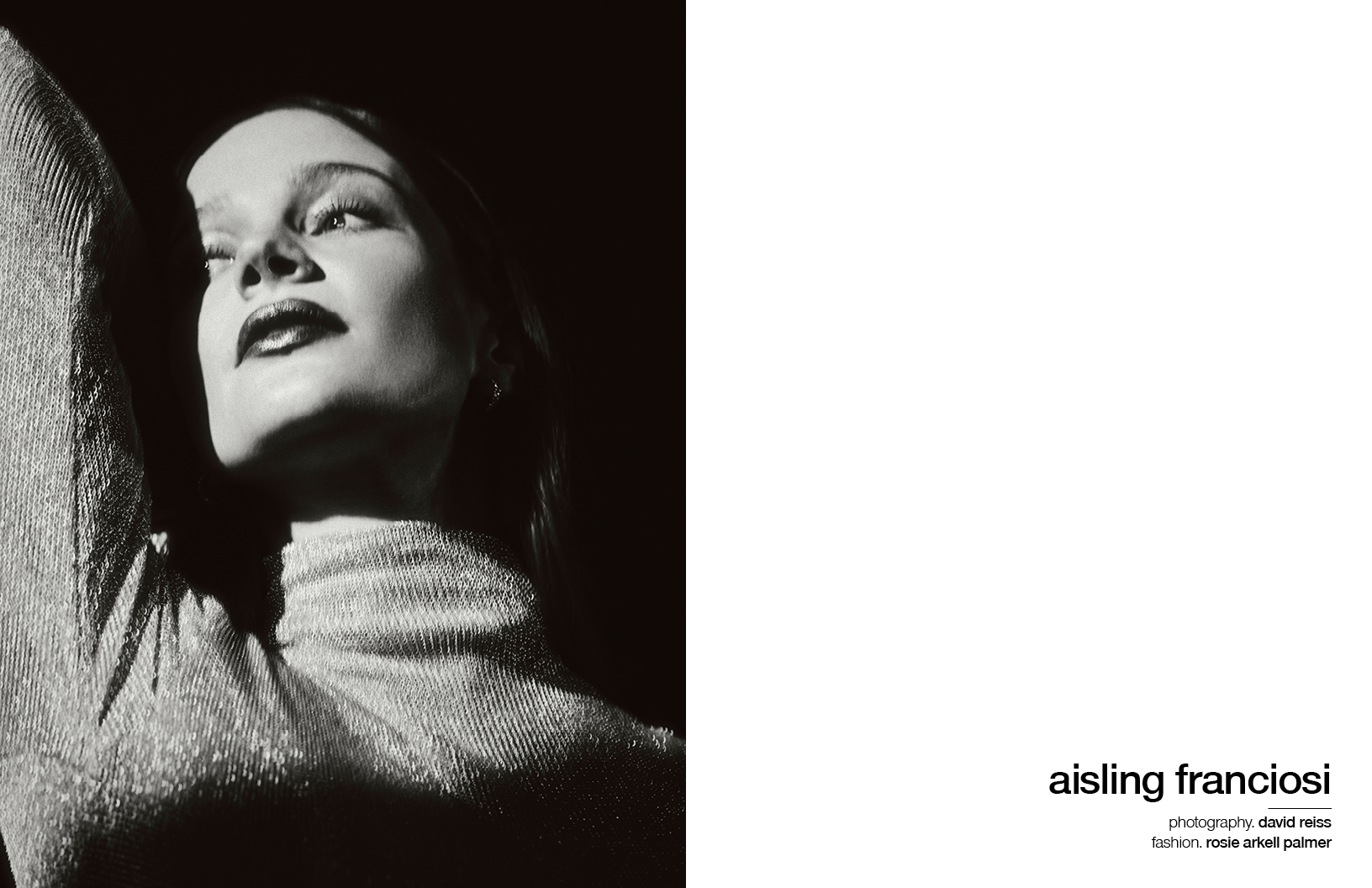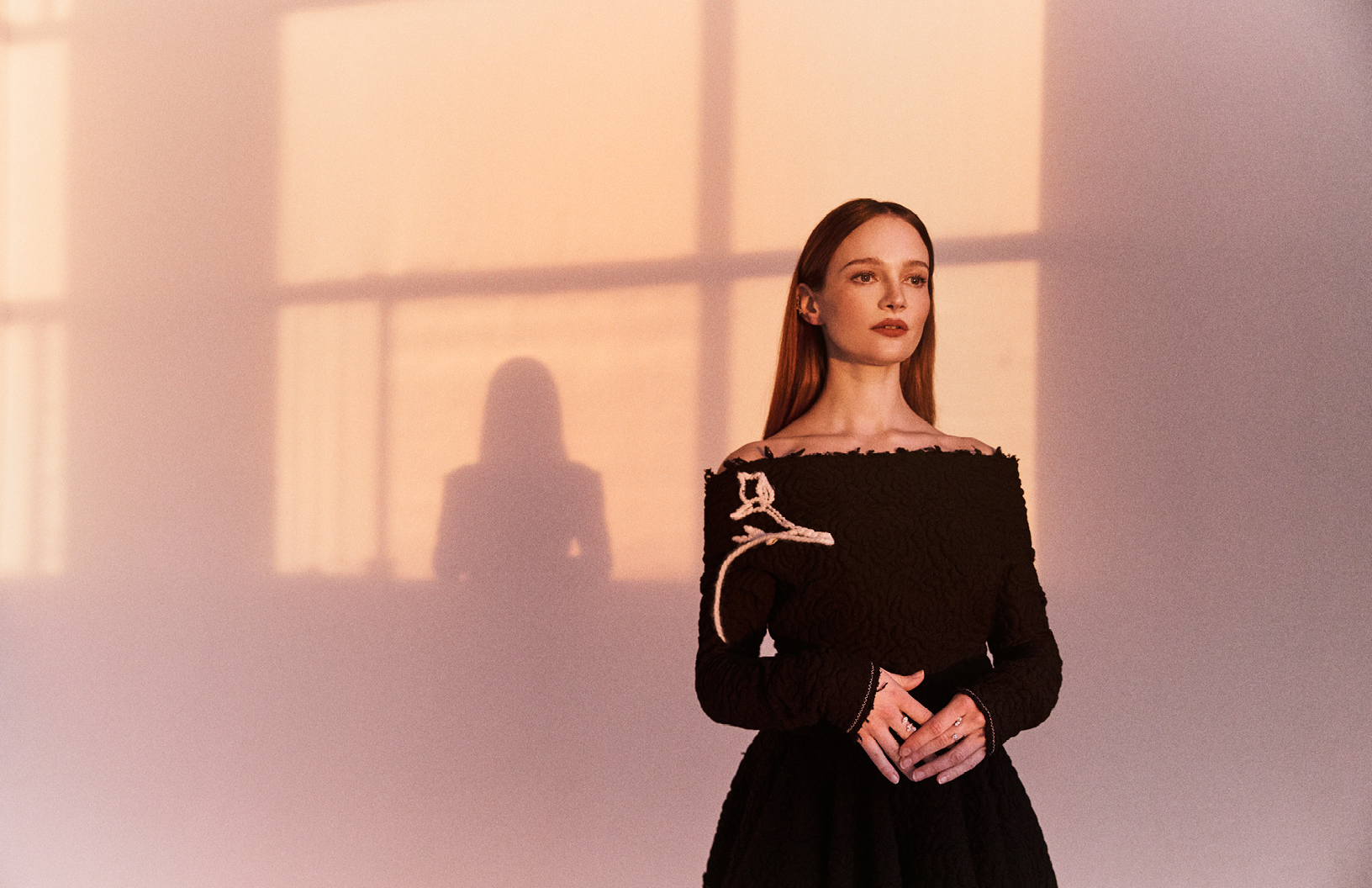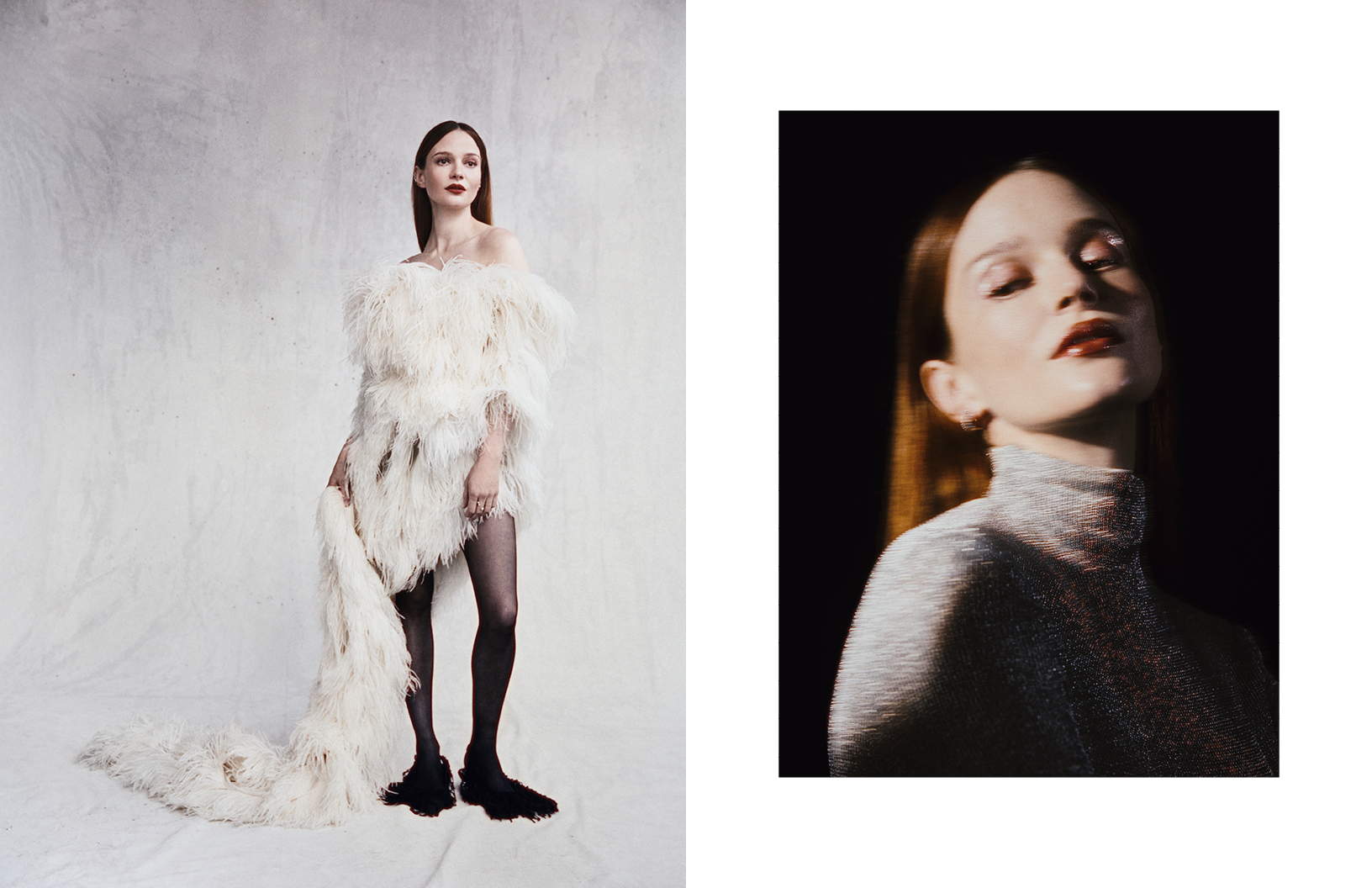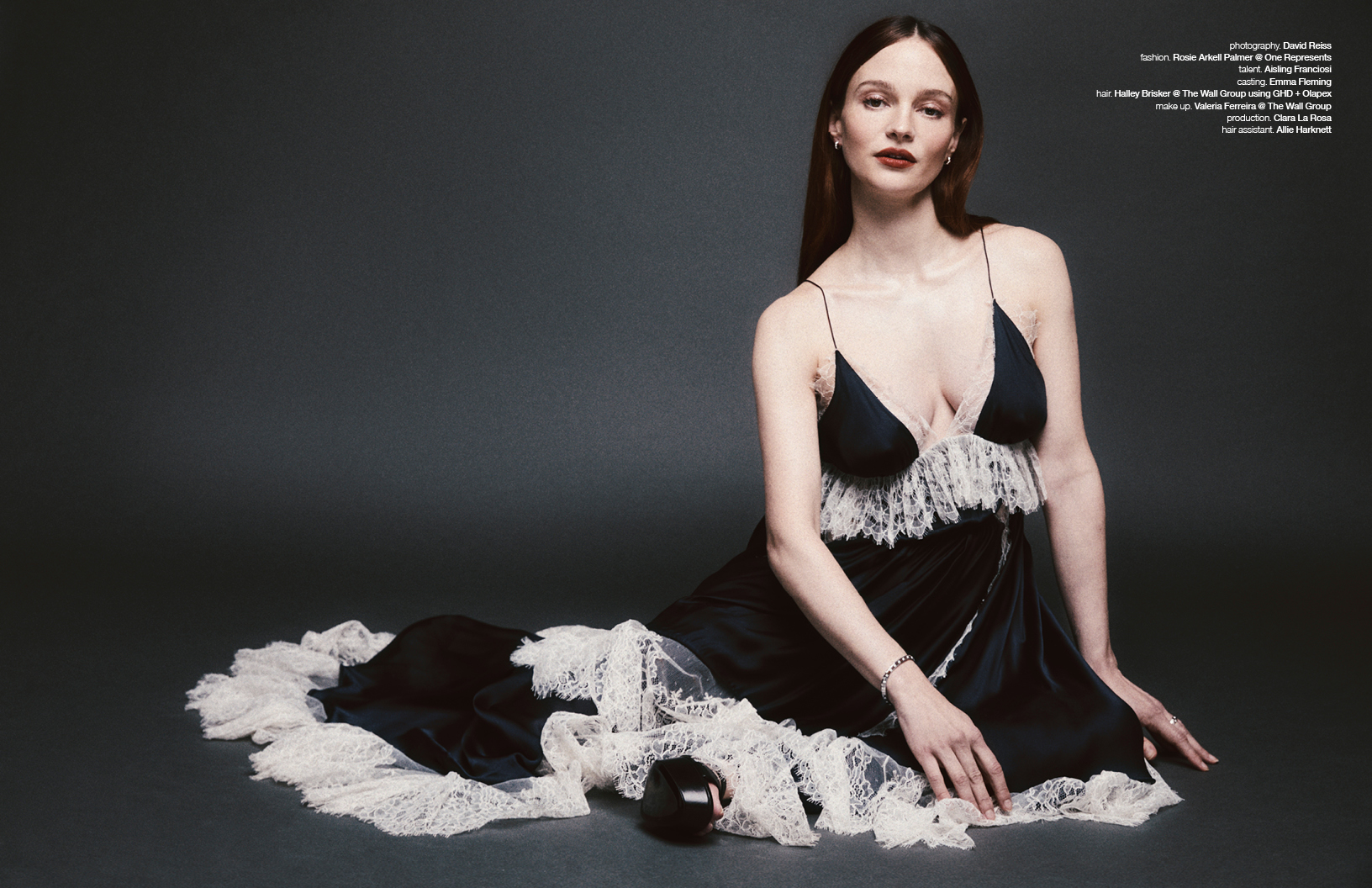“Is this what I want?” In case you haven’t been following along, this is one subtitle that Palestinian/Jordanian Artist and Director Sarah Bahbah delivers in one of her many, iconic cinematic photography series. The answer to the question? This – her art – is what we want. With each of her series, Bahbah tests boundaries, interrogates and unpacks behaviours and contemplates complicated themes by pairing her raw “obsessive” thoughts, feelings and experiences with her raw photography. The result is an invitation for viewers themselves to delve deeper into the stories behind each photo and into their own thoughts and feelings.
Speaking to Schön! over Zoom, Sarah Bahbah details her creative process and her new book that has been ten years in the making, Dear Love.
Does the narrative for your subtitles come first or does the photography come first?
So, it’s always the writing first. The writing is actually a collection of my obsessive thoughts and my obsessive spirals that happen when I am trying to process feelings of instability and a lack of safety.
And when you’re going through stuff, are you finding yourself writing stuff down in places for later?
Usually, I go through those episodes when I’m not grounded – when I’ve abandoned myself for someone else or when I’ve prioritised other people’s needs over mine and then I felt extremely let down. When there is that lack of security, that is when I find myself in these deep, deep spirals. So, I’ll lay back on my sofa and I’ll obsess over every detail. In those periods of reflection, I reimagine scenarios where I wish it was different. I reimagine what it would be like if I had said a certain thing, or if they had said a certain thing.
In my brain, I’m literally going through every single way the conversation could have gone because I’m trying to find a sense of safety. It’s my way of finding closure. That’s when these one liners just pour out of me, and I can come up with 100 lines in a matter of minutes. Once I have all those lines, and I feel like I’ve figured out every single angle of every single scenario that could have happened or did happen, that’s when I feel ready to compose the series. Then, I’m also able to emotionally release my feelings without the need for closure from someone else.
So, by the time you’re releasing them, you’ve sort of processed them. Do you feel like it’s a little bit easier to then put them out into the world?
Yeah, I feel like once they’re out there, they’re no longer mine to carry. I feel like the work in itself is mine. It’s always mine – but that release is therapeutic for me. I have gone through the process at that point, and I have allowed myself to feel everything I’m supposed to feel. Then, I feel like when I give it to the world, it’s no longer mine, and it’s for everyone else to use as their own therapy if they need.
Congrats on your book, Dear Love. Tell us more about it and the thought process behind why you wanted to release it now after all this time and why in February.
So, I released it officially on Valentine’s Day – which felt very fitting – given the themes of the book are all centred around love and a life without it. For me, it was ten years in the making. I always knew I wanted to create a collection of work one day, create a book and have a huge celebration of my career so far.
I officially sat down to do it right after my 30th birthday. I threw this party in the castle, and it was all my loved ones in a literal castle. We had a sound bath, and I made everyone my famous spicy vodka sauce and pasta by the fire pit. Then we took over this Chinese restaurant in the middle of the forest that had ugly red carpet and red booths and it was all just literally magic. I felt so loved and adored. Everyone who was there is my community in LA and there were people who flew in from all over the world too. After that, I knew I was ready and I wanted to really celebrate my 20s – and it took me back to my core – we’re born into this world of love.
Then, I wanted to tell that story of how I got here. So, that’s what Dear Love is about. It’s not only ten years of my work, but it’s a lifetime of storytelling. It’s my memoir. In this book, there’s 45 pages of autobiography that deep dives into how every single series was birthed. That truly is the Easter egg of the book because people don’t even know it’s in there. They think it’s just like a coffee table book with pretty photos.Then when they read any page in that book where there’s writing, they will feel some shit. I can’t wait for people to discover that when they just open it up one day and be like, “oh, holy shit, this is heavy” and I mean not just physically heavy, but also spiritually and emotionally.
There’s a phrase “what’s bad for your heart is good for your art”. What do you think about it?
I advocate for that. For me, when I’m anxious, depressed, heartbroken, grieving or trying to process loss – that is when my best art is made. It does tap into my mental illness of having OCD and anxiety disorder, but it is because of those things that I’m able to create the way that I do. I allow a safe space for my thoughts – no matter how taboo they are and it allows for me to be able to put everything out on paper and organise the chaos in my mind. That helps me experience what I’m supposed to feel, so I can eventually release it. So, if the grief and the heartbreak didn’t exist, then my art wouldn’t exist.
You explore many themes including vulnerability and liberation. Are there any themes that you’re thinking you want to explore further or that you haven’t necessarily touched on yet?
Yes, there’s a lot of untouched territory within the entertainment, film and TV space. Especially, there’s narratives that I’m yet to see exist, which I hope to be on the forefront for, especially for Arab Women. We don’t have a show, for instance, in Western media where there is an Arab Woman as the lead. So, I am working on it.
Is there one series of yours that you have a really special relationship with or that is your favourite and why?
I think there’s so many. I think Bonjour, Bitch was a powerful series for me because it was the first time I was able to really walk away from something that was toxic and was painful for me to exist in. I was on the verge of a relapse and a complete self-sabotage of myself after walking away from this relationship. Instead, I stopped myself in my tracks, took all the pain and hurt and used it to lean into my art. That is how I really processed it and got through it. I pushed myself, and I redirected my path. It is also the first series that appears in “Dear Light” – which is my healing chapter in my book.
Of course, there’s 3EIB! which came right after that series and it is pushing it a little further. I had to sit with myself for months during the pandemic and ask myself why I felt I didn’t belong in front of the camera. The question that kept coming up was: what is my core belief that tells me I am not worthy of celebration? I had to do so much inner work and go back to the first memories of feeling like I didn’t belong and I was othered because I lived in small town f***ing Perth. It was a lot of unlearning my core beliefs, learning new ones and then relearning them. By the end of that process, I knew I needed to do this. Not just for myself, but for other women too. So, it was extremely pivotal.
Fool Me Twice came after that – which is a beautiful series because again, it was the first time I’d experienced healthy love. But at the end of the day, I was still dating an avoidant who was noncommittal. I was able to recognize the smoking gun – he wasn’t going to be able to give me what I need because his desire for intimacy is to have his independence, whereas mine is to be close to him. I knew that I needed that to feel safe, and he was never going to meet me where I needed to be.
Those are the three series and the last three photo series I’ve done that were all about growth and really honouring these new boundaries. I felt like I didn’t fall into the toxic backslip of self-abandoning or self-sabotaging. Instead, it was pure, healthy and it was stable. My emotions were stable. As much as they hurt – they weren’t high-highs and low-lows. They were like just a little off the baseline – and that’s all I needed.
How have the changes in the dating scene and shift in media platforms affected or changed the narrative of your art, if at all?
So now, you have all these dating gurus and these pseudo therapists that give really great advice on the platforms that go viral, but there’s no context. It is a little bit destructive because it really does enable cancel culture in a way. It is encouraging the whole idea of not confronting your shit, but just cutting people off. That’s not healthy. Everything that’s out there needs to be so specific and it has to be contextualised. Otherwise people are going to get bad advice online and it’s going to keep disrupting dating culture because it’s teaching people bad habits based on reading a headline versus actually studying and doing the work.
None of that impacts my art in any way – I have my process, my journey and I have my therapist that I work with to deal with my shit. That is all very separate to what happens online. On a positive note, there is a shift – a new level of awareness going on, which is teaching people to spot the red flags sooner. That is keeping a lot of people safe from heartbreak, but everyone has their own personal journey.
You’ve worked with so many incredible people, including Noah Centineo, Alicia Bo, Dylan Sprouse, and many, many more. Is there somebody that you still haven’t worked with, that you’d like to work with?
Yeah, there’s so many people I would really love to work with. I haven’t worked with Bella Hadid yet, and I really adore her. I love what she stands for and I think we both have a lot of similarities in terms of being public-facing. I mean, she’s obviously on a whole other fucking platform than me, but we both suffer from anxiety. We’re both trying to stay on this enlightened path – I don’t drink, I’m sober and she’s sober. I think we have so many parallels, and I am waiting for the universe to decide the right time to put us in the same room to collaborate. It’s going to be so much bigger than anything either of us have done, and I can’t wait for us to be real collaborators who own our Palestinian identity in the Western world – I know we have a really big story to tell and share with the world together.
Finally, what’s the best piece of advice you’ve ever received?
There’s so much good advice lately. I was given advice about self-acceptance that I really needed to hear a few weeks ago. I felt complete depletion with zero energy to give – and these women I was having dinner with that a mutual friend arranged caught me in such a vulnerable time. They really honed in on what I was feeling and reminded me that every part of us is so worthy of celebration, and that we have to be able to fully accept ourselves as we are, even in those little moments we feel temporary defeat. Though I knew this message and had heard it so many times before, I realised I had just forgotten because I was so deep in my ego. It was the best reminder that self-acceptance is key.
Dear Love is available now.
photography + direction. Mynxii White
fashion. Jules Wood
talent. Sarah Bahbah
hair. Barbara Lamelza
make up. Kayli Rachelle
production. James Kristofik
camera assistant. Jaslynn Espinoza
interview. Sandy Aziz


























